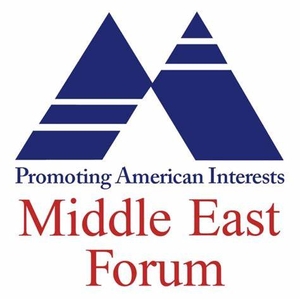 Given the many excellent organizations dealing with Middle Eastern and Islamic issues, what niches does the Middle East Forum's fill? We provide strategic counsel, as opposed to advocacy or apologetics. To understand what this means, look at the Arab-Israeli conflict, which attracts particularly intense attention and vehement views. (The same applies, however to other topics, including Islamism, the Erdoğan regime, and the Islamic Republic of Iran.)
Given the many excellent organizations dealing with Middle Eastern and Islamic issues, what niches does the Middle East Forum's fill? We provide strategic counsel, as opposed to advocacy or apologetics. To understand what this means, look at the Arab-Israeli conflict, which attracts particularly intense attention and vehement views. (The same applies, however to other topics, including Islamism, the Erdoğan regime, and the Islamic Republic of Iran.)
Advocates fill the news pages and airwaves with passionate statements of justification and condemnation. Their work involves morality: which of the combatants acts with justice, and which acts in evil ways? Those advocates who win this argument shape public opinion and that, in turn, influences or even determines government policies.
 But morality and justice are not the only important debate; another one, more specialized, concerns strategy – not who is right or wrong, but how to win. This latter discussion focuses on an assessment of forces and offers ideas how to achieve one's goals. The strategist takes the goals for granted (i.e., a secure Israel) and focuses on achieving them.
But morality and justice are not the only important debate; another one, more specialized, concerns strategy – not who is right or wrong, but how to win. This latter discussion focuses on an assessment of forces and offers ideas how to achieve one's goals. The strategist takes the goals for granted (i.e., a secure Israel) and focuses on achieving them.
Advocacy and strategy each have their role. The advocate speaks of right and wrong, the strategist deals with success and failure. Passion marks the former, ice runs in the latter's veins. One engages in media criticism, the other in criticism of his own side. The advocate would choke on presenting his adversary's viewpoint but the strategist routinely puts himself in his opponent's place (think of war games). For example, I have imagined myself in charge of the Islamist movement, figuring out what it should do so as to understand how best to stop it.
Advocates seek to convince the undecided;[1] strategists seek to guide those who agree.
Like most research institutes, the Middle East Forum focuses primarily on strategic activities. This is, I believe, the best use of our having devoted years or even decades to the study of our topics. To defend our outlook, attack the views of our opponents, and convince the undecided are crucial tasks, but not ours. MEF focuses on helping our side figure out how to win. The Forum's work primarily addresses two audiences: (1) the educated public and (2) specialists who both share our outlook and seek information, analysis, and policy recommendations.
For example, when I discuss the media's biased coverage of Israel, I do so not to discredit it but to understand its logic and to suggest ways for those concerned with Israel's security and welfare to deal with it. Likewise, during the Gaza hostilities of 2008-09, I stayed away from justifying Israel's conduct or excoriating Hamas but instead criticized Israeli strategic ineptitude and offered an alternative approach. Counter-intuitively, I have argued for "The Solace of Poor U.S.-Israel Relations."
Debates, responses, corrections, defenses, polemics, apologetics, and public diplomacy have a crucial role; but the Forum is engaged in finding the path to victory. (January 31, 2012)
Later examples of this approach in my writing about the Arab-Israeli conflict:
- "Pollard Pardon? Not Now." National Review Online, Feb 23, 2014.
- "The Way to Peace: Israeli Victory, Palestinian Defeat." Commentary, January 2017.
[1] These tend are relatively few with regard to the Palestinian-Israeli conflict. Imagine a lesser-known conflict, such as the Rwandan genocide; how many readers know which ethnic group, the Hutus or the Tutsis, massacred the other? For some, the Palestinian-Israeli conflict is equally obscure
